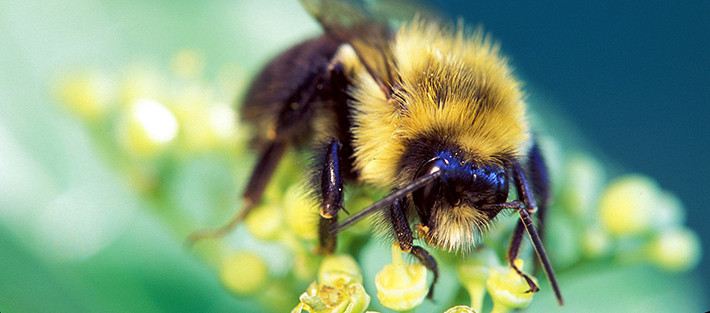Crushing bees into 'DNA soup' being touted as quick, cheap and accurate tracking method

Crushing bees into a "DNA soup" can help conserve the crucial pollinator species, say scientists.
The new method for large-scale bee monitoring was tried out with a total of 204 bees collected and crushed into a soup which was put through a DNA sequencer.
A computer program mapped the DNA against the stored genetic data of bee mitochondria to identify the species of bees in each sample.
University of East Anglia (UEA) scientists who led the work believe that the method is efficient in detecting where and when bee species are being lost and to check if conservation measures are working.
Traditional monitoring sees individual bees pinned and identified under a microscope. The method is unreliable as large numbers of bees are needed to track populations reliably. It is labour-intensive and error-prone and often the data might not be available for years after the collection.
Lead researcher Dr Douglas Yu, from UEA says, "We need more efficient identification methods if we are to improve our understanding of bee populations and their responses to conservation interventions. The big challenge is that there are hundreds of wild bee species per country, almost 300 in the UK alone. Even with the necessary expertise, it would be impossibly time-consuming to count and identify all the bees in each location - which is where the 'soup' comes in."
The new soup method makes the monitoring process quicker, cheaper and more accurate, say the researchers.
It does not require taxonomic experts.
By skipping the DNA-amplification step known as PCR, the method was able to estimate the biomass contributed by each species, which opens the way to tracking population trajectories.
The study, published in the journal Methods in Ecology and Evolution, saw the UEA team working with Conservation Grade and the University of Reading in the UK, the Kunming Institute of Zoology and the China National GeneBank at BGI-Shenzhen in China.
For animal rights activists alarmed over the method, Dr Yu claims, "The number of bees that end up in one of my soups is absolutely tiny compared with the populations being studied."
Insect soup is a sensitive thermometer that can easily be scaled up to track more species, like the 1000 or so total pollinating insects in the UK, he adds.
Studying species diversity for where it is highest and what factors affect it would be possible with the technique.
"Species biodiversity at any given site can be revealed in a single drop of soup. It's a technique that shaves weeks, months, years off traditional ecological methods, saves money and spares the need for tons of taxonomic expertise."
Bees are important players in maintaining both biodiversity and food production. They are being threatened by habitat loss, pesticides, climate change and disease and have disappeared totally in many parts of the world.
© Copyright IBTimes 2025. All rights reserved.





















